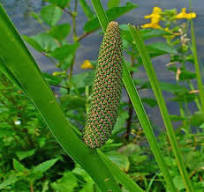
Vaadanarayanan (Acorus Calamus)
Share
Vacha – Acorus calamus is very rich in medicinal values, used in Ayurvedic medicines since the times of Chakara and Sushruta. Improves speech, intelligence and more. It is called Sweet Flag in English
Botanical Name- Acrous calamus Linn.
Family- ARACEAE (Sooran kula)
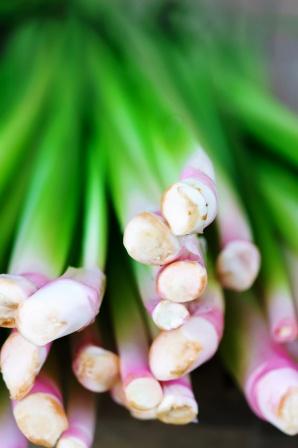
Table of Contents
Vernacular names
Names in different languages:
Hindi Name-Bach, Ghorbach, Safed bach
English Name- Sweet flag, Calamus, Myrtle grass
Kannada Name – Baje
Telugu Name- Vasa
Tamil Name- Vasambu, Pullai-valathi
Malayalam Name- Bavambu
Arabic name – Vaj, Vash, Oudul Vaj
Gujarati name – Gandhilo vaj, Godavaj
Kashmiri name – Vachi, Vaigandar
Persian: Agar, Agarturki, Vasa
Urdu: Bach, Vaj
Nepali Name – Bojho;
Unani: Vaj turki, Bacch;
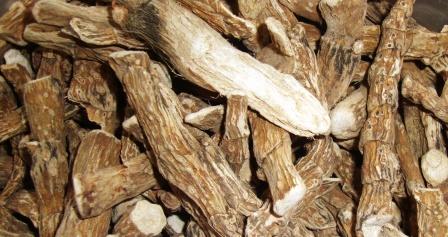
Sanskrit synonyms
Ugra gandha, ugra – having offensive nauseating smell,
Golomi – Rhizome of vaca has hairs over it resembling the hair of cow
Lomashi, jatila – Hairy rhizome
Sataparvika – Rhizome has numerous nodes
Shadgrandha – More than 6 nodes present in its rhizome
Haimavati
mangalya – Auspicious herb
Karshani – It help to reduce weight
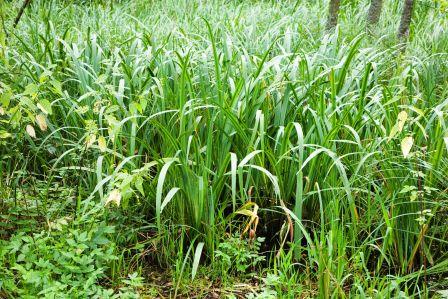
Classical categorization
Charaka-
Lekhaniya – Group of herbs having scraping quality, useful in obesity
Arsoghna – Group of herbs useful in piles treatment
Truptighna – Group of herbs that cure early satiation,
Asthapanopaga – Group of herbs used in decoction enema
Shirovirechaana – Group of herbs used in Nasya treatment
Sanjnasthapana – Group of herbs used in restoring consciousness
Sheeta prashamana – Group of herbs useful to relieve coldness
Susruta- Pippalyadi, Mustadi, Vachadi
Vagbhata- Mustadi, Vacadi, Vatsadi, Haridradi Chardana, Niruhana
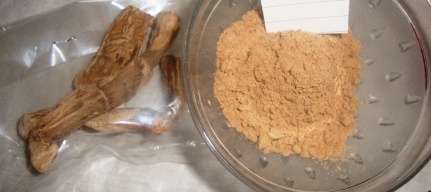
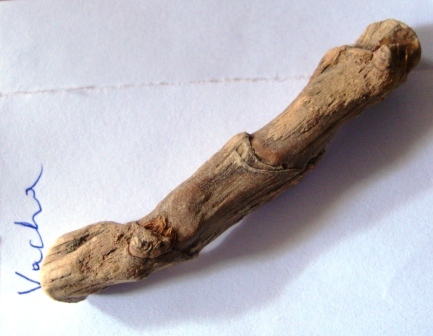
Distribution, varieties
Distribution- Cultivated in moist regions of India especially in Manipur, Nagaland, Kashmir. Also found in Srilanka. Grow in Marshy land .
Varieties of Vacha:
As per Charaka, there are two varieties –
Vacha – Acorus calamus
Shweta Vacha – white variety – Iris germanica / Parils plyphylla.
As per Bhavaprakasha, there are five varieties –
Vacha – Acorus calamus linn
Parasika Vacha (Haimavati) – Iris germanica Linn
Kulanjana – Mahabhari Vacha – Alpinia galanga Willd
Sthoola Granthi – Zingiber zerumbet Rose
Dveepantara Vacha – Chopachini – Smilax china
Morphology
Perennial terrestrial herb of marshy places
Stem – Stout, creeping
Rhizome – aromatic
Leaves – Sword shaped, erect, shar pointed, sheathing each other, midrib is stout parallel venation
Inflorescence – Spadix
Flower – Densely cover the entire spadix, greenish yellow
Fruit – Turbinate, prismatic, pyramidal
Useful part – Rhizome – Sub cylindrical light brown colour. The upper surface shows leaf scars, while the lower surface bears small raised circular root scars.
Chemical constituents
Acorus calamus chemical Constituents: Acolamone, Acorenone, Acoragermacrone, Acoramone, Acorone, Cis- & trans- asarone, B-& ofasarone, Azulena, Cadalene, Calamenone, Calamenene, Calamenol, Calamone, calamenone, Calamenenene, calarene, B- gurjune, Camphene, Eugenol, Telekin, Preisocalamendiol, Acoric acid, Calamen, Diol, Calamenone etc.
(Reference: Illustrated Dravyaguna VIjnana, Vol. II, by Dr JLN Shastry)
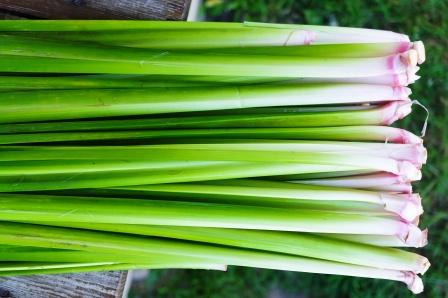
Medicinal properties
Acorus calamus medicinal Properties:
Rasa (taste)- Katu (pungent), Tikta (bitter)
Guna (qualities) – Laghu (lightness), Teekshna (strong, piercing)
Vipaka- Katu
Veerya- Ushna – Hot potency
Effect on Tridosha – Balances Kapha and Vata Dosha.
Prabhava – special effect – Medhya – improves intelligence
Pharmacological action – Vermifuge, Carminative, Sedative, Tranquilizer
Part used, dosage
Part Used: Sweet flag Rhizome
Dosage: Powder 125-500 mg in divided dose per day.
1 – 3 g ( For vamana panchakarma procedure )
Benefits
Vacha – Acorus calamus benefits:
Pachana – Digestive, relieves Ama Dosha
Vahnikrut, Deepana – improves digestion strength
Vamani – induces vomiting
Medhya – improves intelligence
Jeevani – enlivening
Vak prada – improves speech
Swaraprada – improves voice
Unmadahara – useful in schizophrenia
Apasmarahara – useful in epilepsy
Jantuhara – antimicrobial
Shoolahara – relieves abdominal colic pain
Vibandhahara – Relieves constipation
Adhmanahara – relieves bloating, gaseous distension of abdomen
Shakrut Mutra Vishodhini – cleanses feces and urine
Kantya – improves voice tone and quality, useful in throat disorders
Anilahara – useful in treating disorders of Vata Dosha imbalance such as neuralgia, paralysis, constipation, bloating, etc
Phirangahara – relieves syphilis
Rakshoghna, Bhutaghna – Useful against psychological imbalances and disorders
Vatajwarahara – useful in fever with bodyache
It is extensively used in obesity treatment. Especially as a herbal mix for powder massage (Udvartana).